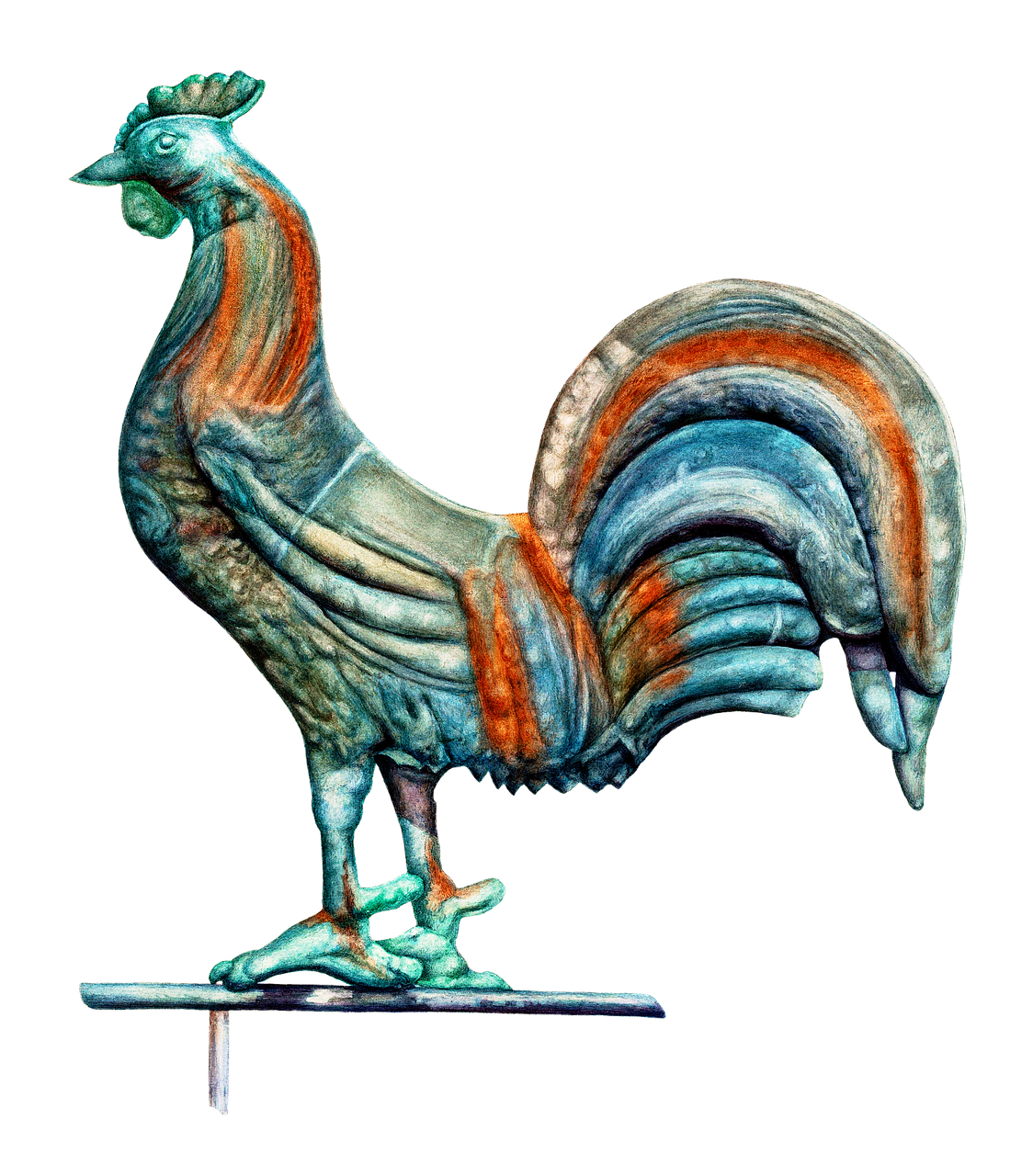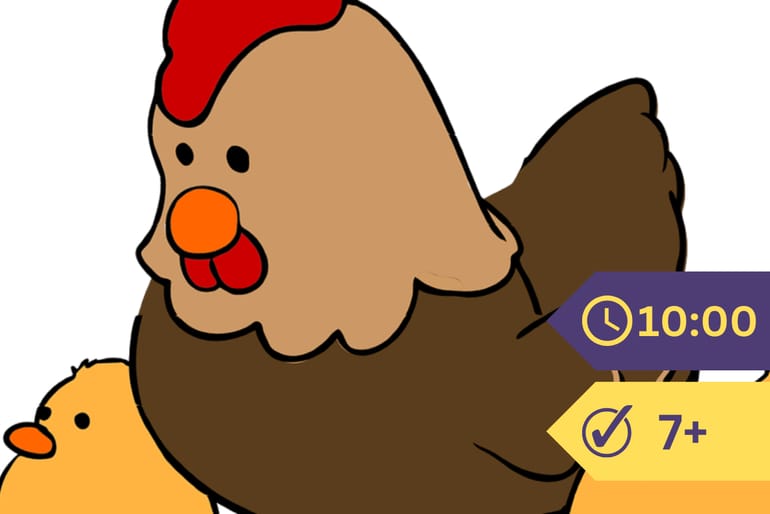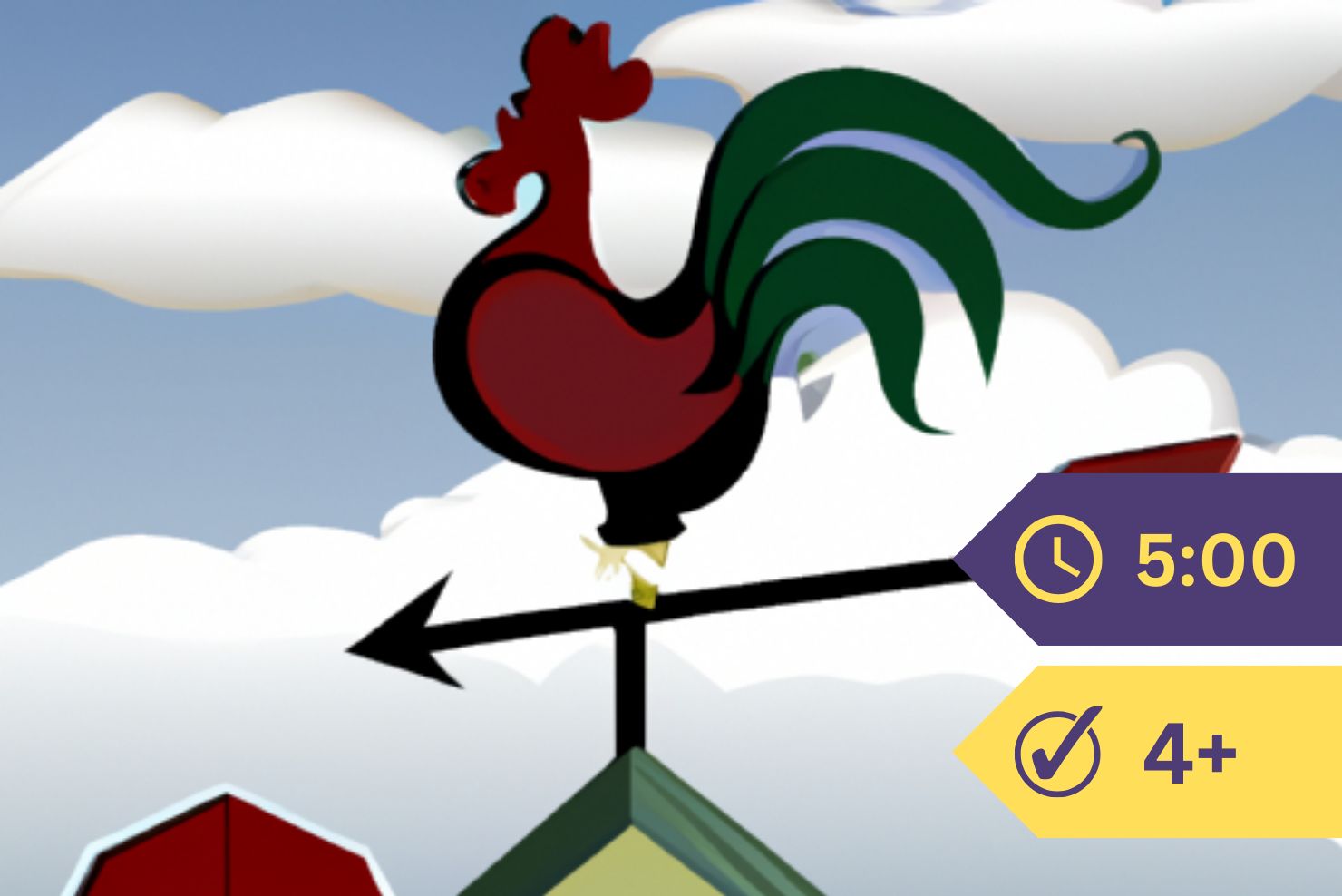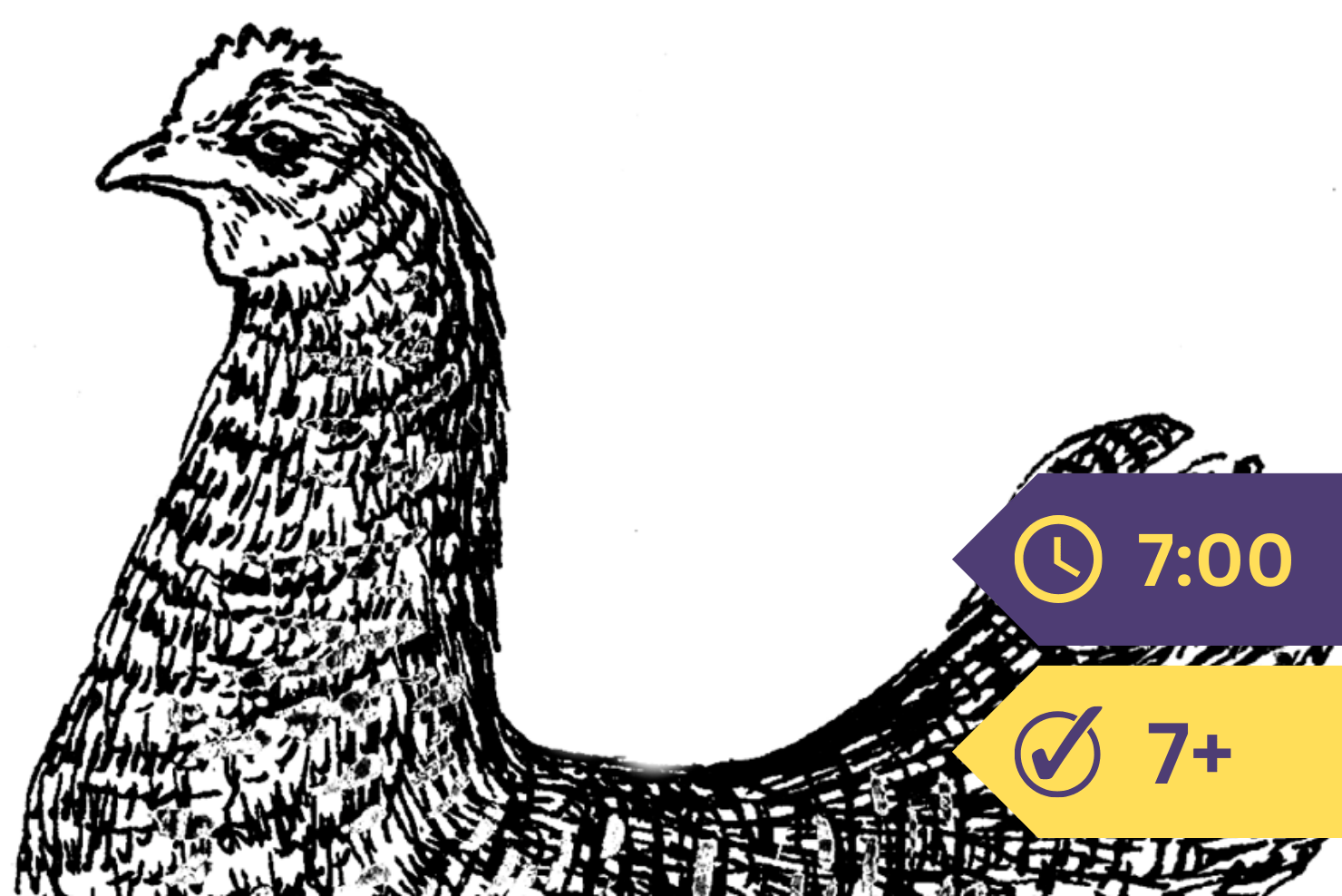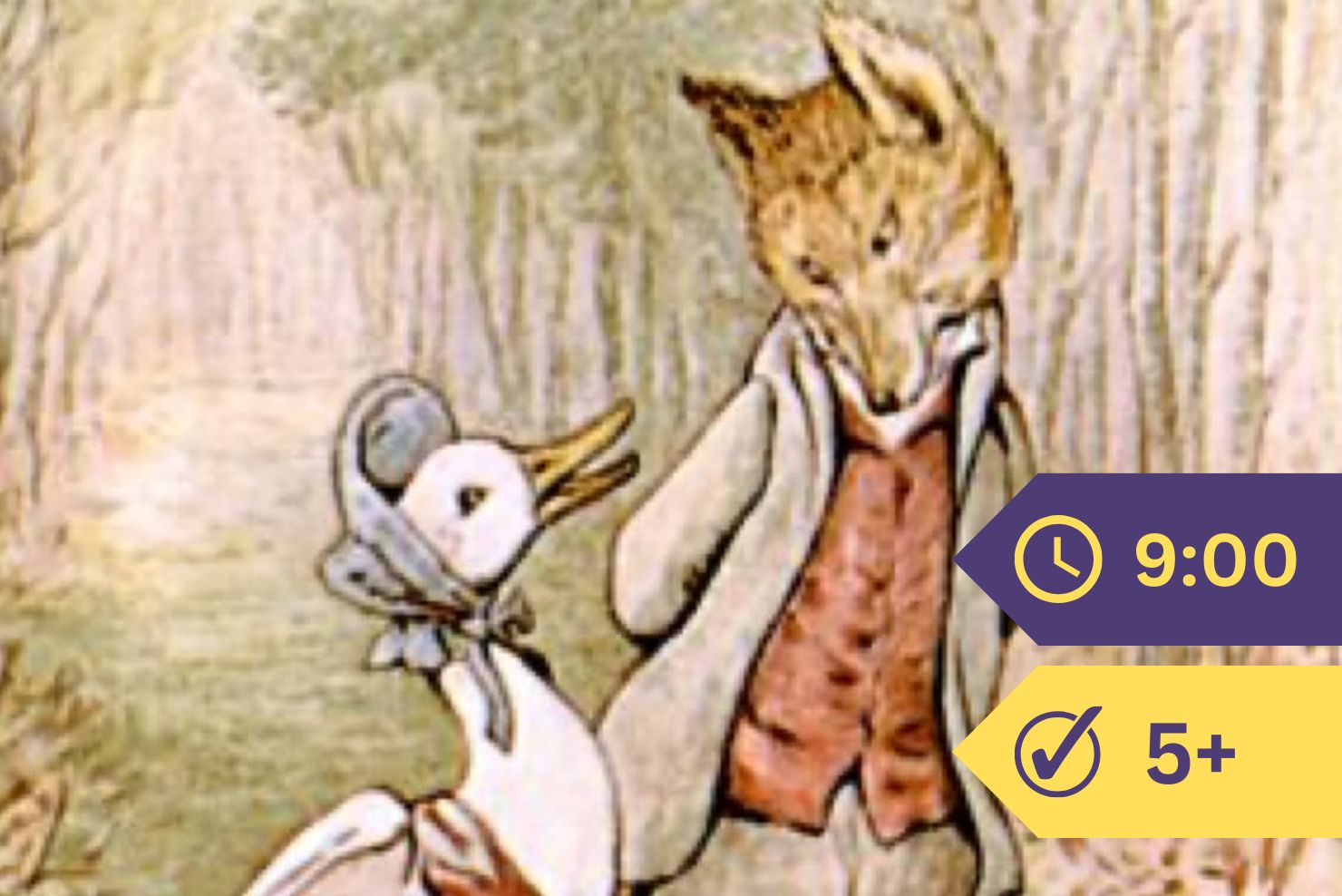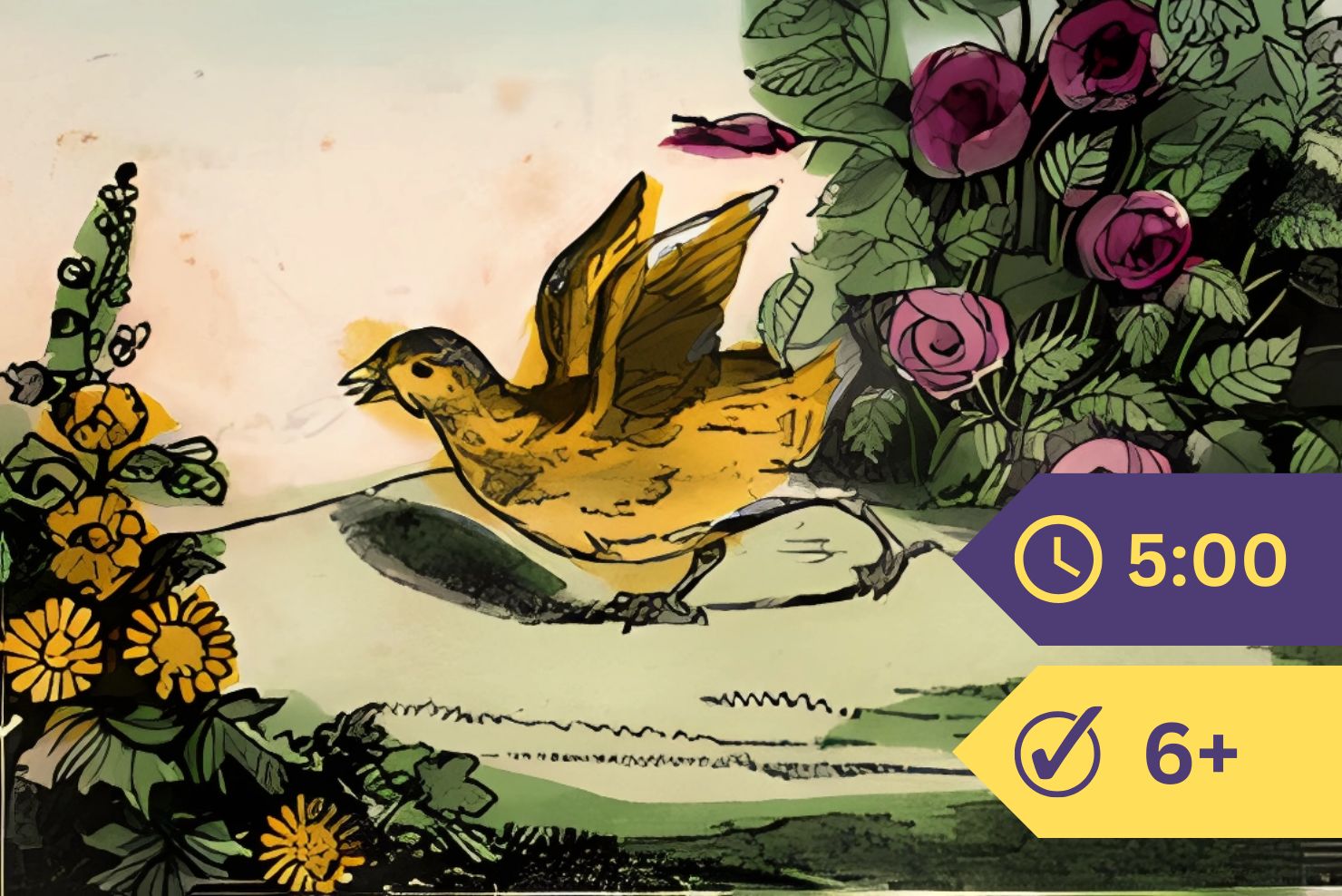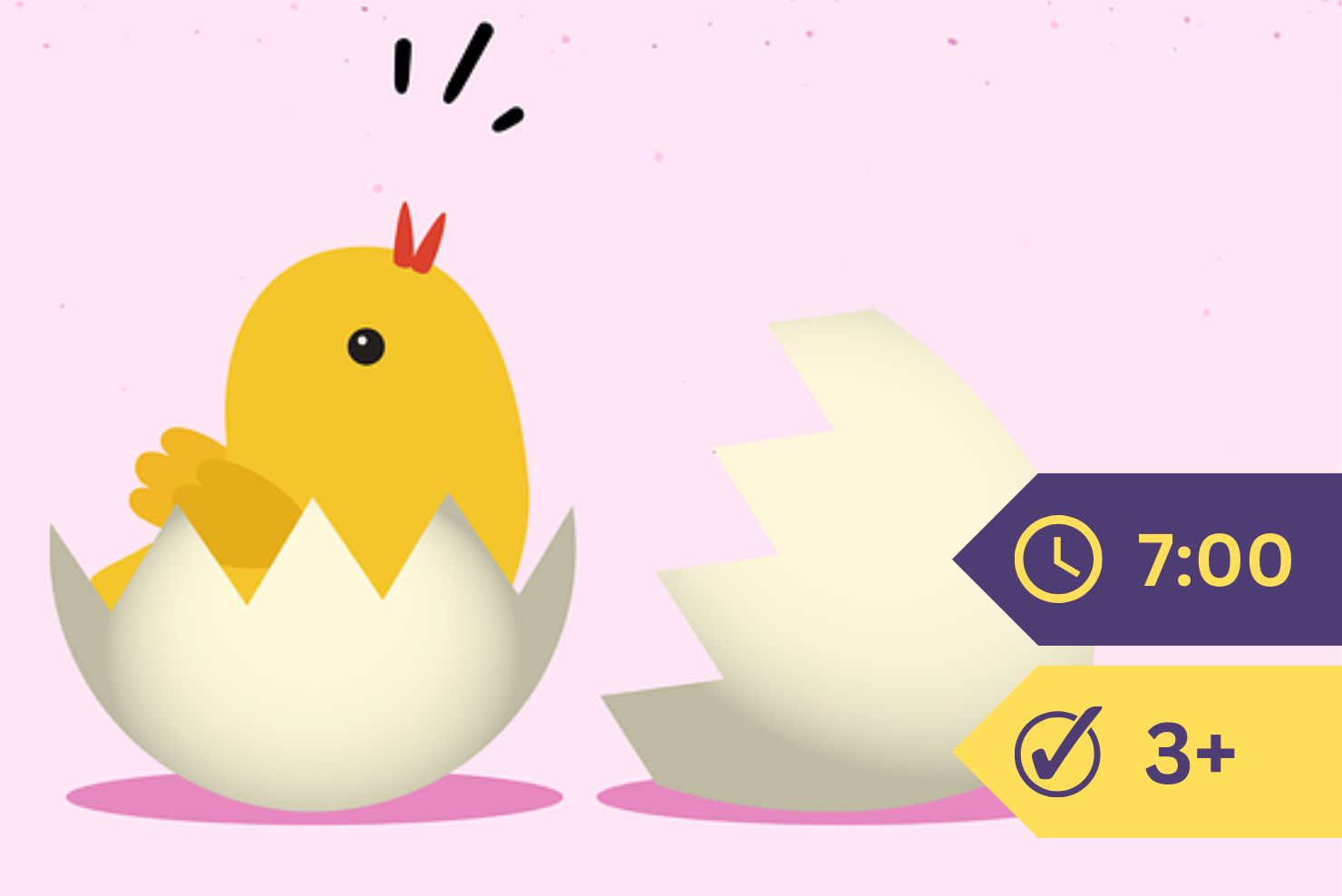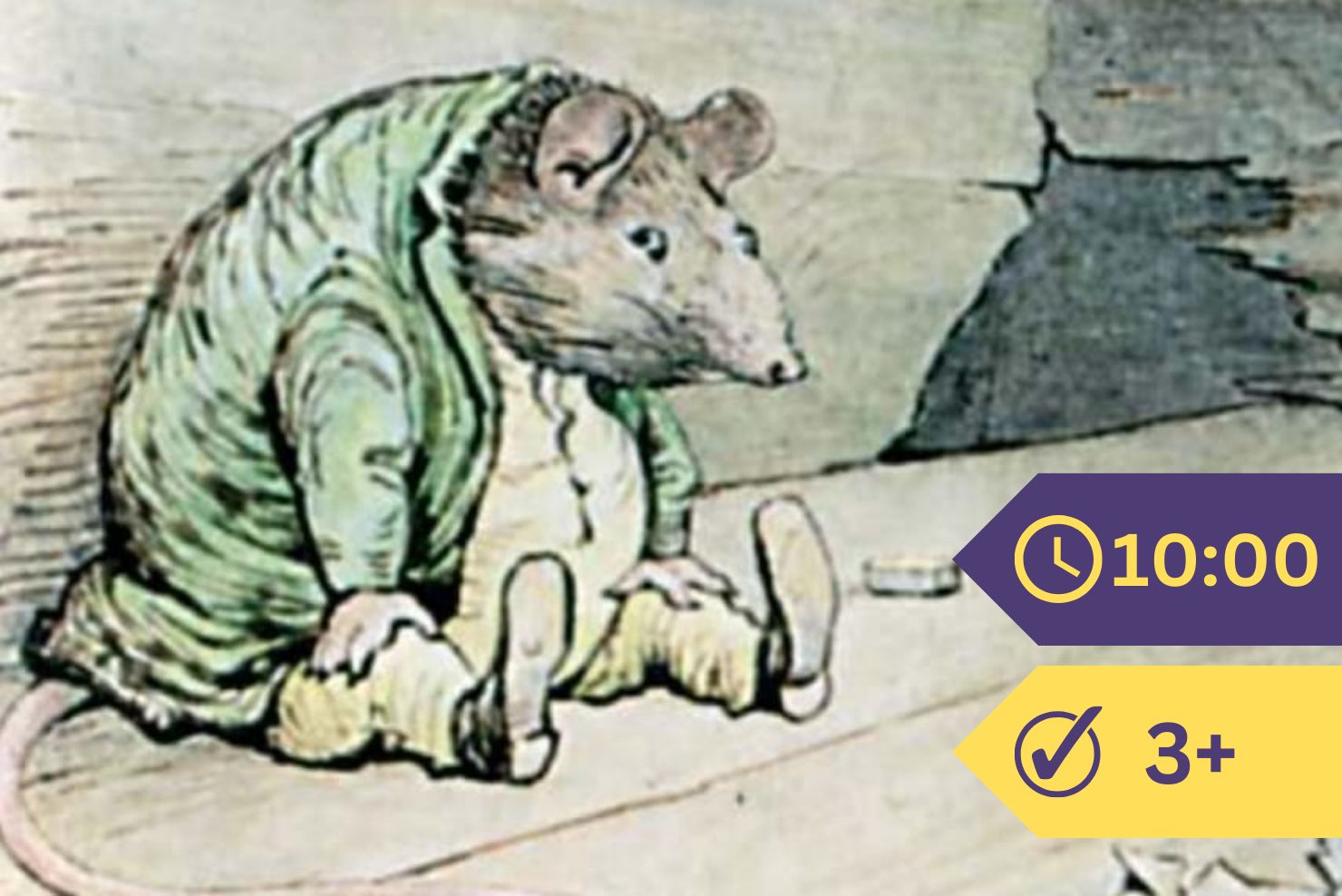Once upon a time, there was a beautiful black Spanish hen who had a large number of brood hens. They were all lovely, plump birds. Only the youngest was very different from his brothers and sisters.
He was such a strange-looking creature that when he first emerged from his eggshell, his mother could hardly believe her eyes. He was truly different from the twelve other fluffy, soft little chicks.
This bird looked like it had been cut in two. He had only one leg, one wing, and one eye. He also had only half a head and half a beak. His mother shook her head sadly as she looked at him and said:
“My youngest is only half a chick. He can never become as tall and handsome as his brothers. They will go out into the world and rule over their own chicken coops. But this poor little thing will always have to stay at home with his mother.” She named him Medio Pollito. This means half chick in Spanish.
Although Medio Pollito looked helpless and strange, his mother soon discovered that he liked to wander off. He didn’t want to keep staying under her wing. He was totally different from his brothers and sisters in both character and appearance.
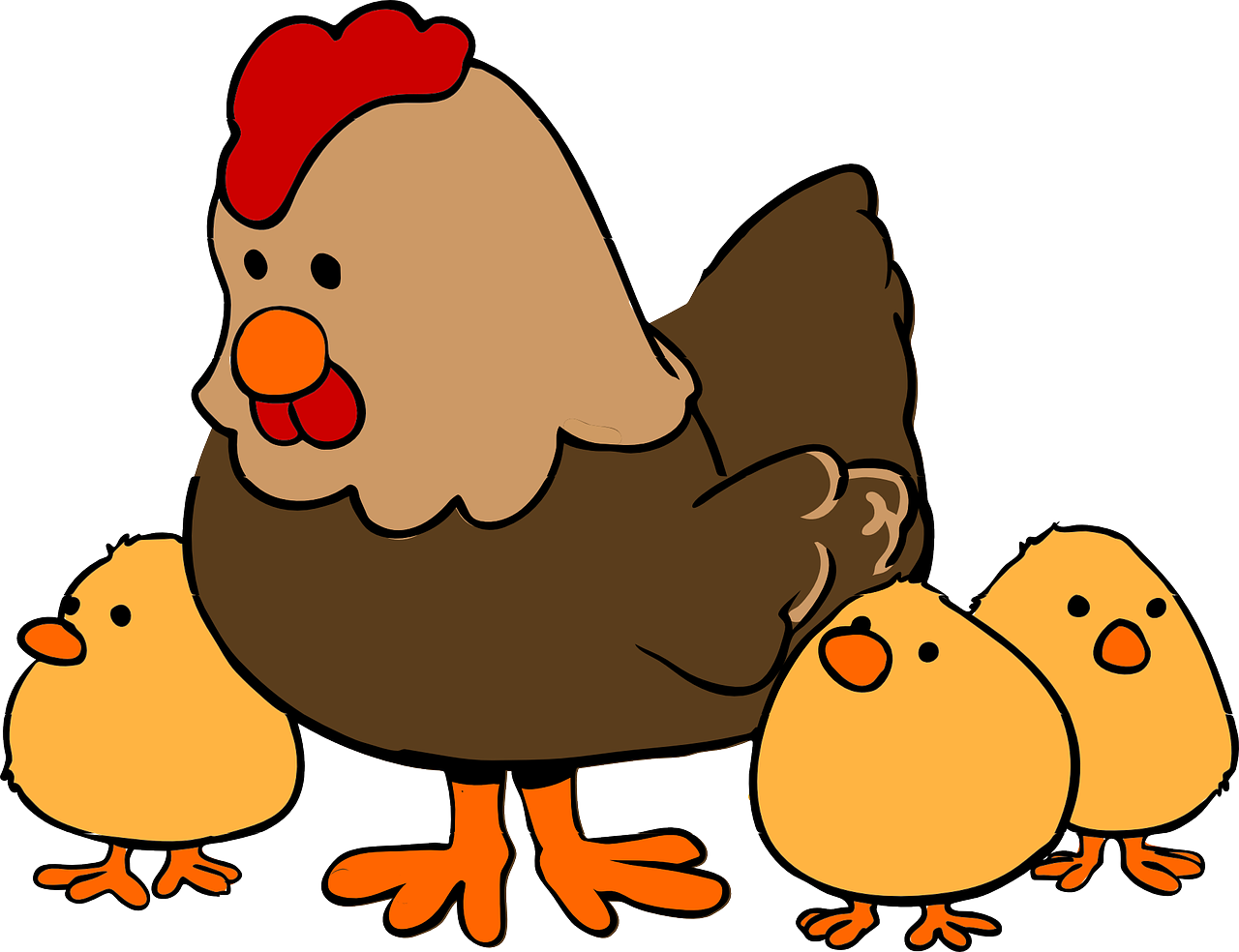
His brothers and sisters were good, obedient chickens. If the old hen ran after them, they would start clucking but soon return to her. But Medio Pollito was a real wanderer, despite having only one leg. When his mother called him back to the coop, he pretended not to hear her. After all, he only had one ear.
When the whole family went for a walk in the fields, Medio Pollito would jump away and hide among the corn. His brothers and sisters would search for him anxiously for minutes. His mother would cluck very loudly in fear and run back and forth in distress.
As Medio Pollito grew older, he became more and more stubborn and disobedient. He often behaved rudely towards his mother. He had a bad temper and was unkind to the other chickens.
One day, he had been out on a longer trip than usual. When he returned, with his peculiar hop, he approached his mother. He looked at her boldly and said: “Mother, I am tired of this life on this boring farm. Here, you only have a view of a bleak cornfield. I’m going to Madrid to see the King.”
“To Madrid, Medio Pollito, how did you come up with that?” exclaimed his mother. “Well, you silly goose, it would be a long journey for you. Such a poor little thing like you would be tired before you’ve covered half the distance. No, you just stay at home with your mother. One day, when you’re older, we’ll go on a trip together.”
But Medio Pollito had made up his mind and didn’t want to listen to his mother’s advice. He paid no attention to the pleas of his brothers and sisters either.
“What’s the point of all of us sitting on top of each other in this small shabby coop?” he said. “Instead, I can have a beautiful courtyard all to myself, near the palace of the King. I will ask you to visit me now and then.” Medio Pollito could hardly wait to go. He said goodbye to his family and hopped onto the high road that led to Madrid.
“Be sure to be kind and polite to everyone you meet,” his mother called out as she chased after him. But he was in such a hurry to leave that he didn’t answer or even look back. He didn’t even hear his mother’s advice.
Later that day, as he took a shortcut through the fields, he came across a stream. The stream was completely clogged with weeds and water plants, so the water couldn’t flow freely anymore.
“Oh Medio Pollito,” called the stream as the little chicken hopped along the banks, “please help me clean up these weeds.”
“You can call for help all you want,” replied Medio Pollito as he shook his feathers. “But do you think I have nothing better to do? I can’t waste my time on such trifles. Help yourself and don’t bother busy travelers like me. I’m going to Madrid to see the King.” And with a hop-skip, he hopped away.
A short time later, he came across a fire that had been left by some gypsies in a forest. The fire was still burning a little, but would soon be extinguished.
“I’m about to go out, please help me by putting some branches and dry leaves on me,” called the fire.
“Yes, you can call for help,” replied Medio Pollito, “but I have other things to do. Gather those branches yourself. Don’t bother busy travelers like me. I’m going to Madrid to see the King.” And with a hop-skip, he hopped away.
The next morning, as he approached Madrid, he came across a large chestnut tree with huge branches. The wind had been caught in the branches and was trapped. “Oh, Medio Pollito,” called the wind, “please jump into the tree and help me get out of these branches. I’m stuck and can’t blow away.”
“It’s your own fault that you’re there, you blew yourself into that tree,” replied Medio Pollito. “I can’t waste my entire morning helping you. Shake yourself loose and don’t bother me. I’m going to Madrid to see the King.” And with a hop-skip, he hopped away. He was very cheerful because he could already see the towers and roofs of Madrid.
As he entered the city, he saw a large, magnificent house with soldiers at the gate. He knew this must be the palace of the King. He decided to go to the front gate and wait there until the King came out. But as he hopped along the windows, the King’s cook saw him.
“Look, this is exactly what I need! The King has just sent word that he wants chicken soup for his dinner,” he exclaimed. He opened the window and reached out to catch Medio Pollito. Then he put him in the soup that was cooking over the fire. Oh, oh, how wet the water felt as Medio Pollito went underwater. His feathers were sticking out all over.
“Water, water,” cried the little chicken desperately, “have mercy on me, please don’t make me so wet.”
“Oh Medio Pollito,” replied the water, “you didn’t want to help me when I was in the brook in the fields. Now you’re being punished for it.”
When the fire started to burn and threatened to scorch Medio Pollito, the little chicken jumped from one side of the pot to the other. He tried to get away from the heat and pain. He cried out desperately, “Fire, fire, please don’t scorch me, you can’t imagine how much it hurts.”
“Oh Medio Pollito,” replied the fire, “you didn’t want to help me when I was dying in the forest. Now you’re being punished for it.”
Finally, when the pain was so intense that Medio Pollito thought he would die, the cook lifted the lid of the pot to see if the soup was ready for the King’s dinner.
“Look here”, he cried in alarm, “this chicken is completely useless. There is no skin or bone on it. I can’t send something like this to the Royal table.” He opened the window and threw Medio Pollito onto the street. There, the Wind grabbed him by the collar and blew him through the air so quickly that he could barely breathe. His heart was racing and he thought he would break in half.
“Oh, Wind,” he gasped for breath, “if you blow me forward so fast, I will die. Please let me rest for a moment, or…” but he was so out of breath that he couldn’t finish his sentence.
“Ach, Medio Pollito,” answered the Wind, “when I was caught in the branches of the chestnut tree, you did not want to help me. Now, it is your turn to suffer the consequences.” He then made Medio Pollito whirl over the roofs of the houses until he was at the tallest church in the city. There, he pinned Medio Pollito to the top of the spire.
And there Medio Pollito still stands to this day. If you go to Madrid and walk through the streets and arrive at the tallest church, you will see Medio Pollito sitting on one leg, with one wing hanging at his side. And with one eye, he looks sadly out over the city.
